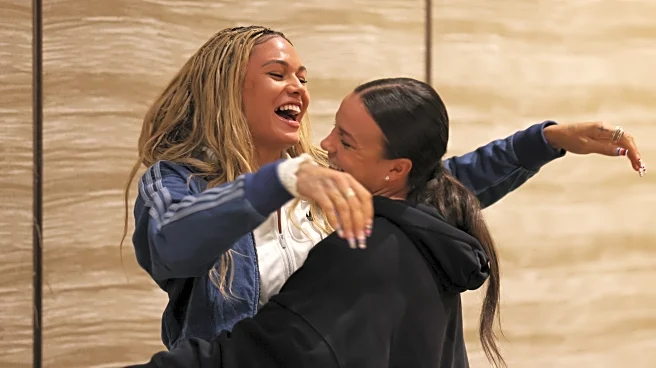What is the story about?
What's Happening?
A video capturing a couple sleeping on a cruise ship balcony has gone viral, igniting a debate over privacy and etiquette. The footage, taken by individuals on a neighboring ship, was shared on TikTok by user @mandythrcruiseplanner, who expressed discomfort with the practice of filming strangers without their consent. The video has amassed over 557,000 views, with many commenters agreeing that filming individuals in such private settings is inappropriate. The incident has sparked discussions about the boundaries of personal space on cruise ships, with some arguing that a balcony should be considered an extension of one's private area.
Why It's Important?
This incident highlights the ongoing tension between privacy and the pervasive nature of social media. As platforms like TikTok continue to grow, the ease of sharing personal moments captured without consent raises ethical questions. The debate underscores the need for clearer guidelines on privacy in semi-public spaces, such as cruise ship balconies. For the cruise industry, this could lead to increased scrutiny and potential policy changes to protect guests' privacy. Social media users and content creators may also face heightened awareness and criticism regarding the ethical implications of their content.
What's Next?
The cruise industry may need to address privacy concerns more explicitly, possibly by implementing policies that protect guests from being filmed without consent. Social media platforms could also face pressure to enforce stricter guidelines on content that involves non-consenting individuals. As public discourse around privacy evolves, there may be calls for legal frameworks to better protect individuals in semi-public spaces. Stakeholders, including cruise operators and social media companies, will likely monitor public reactions and consider adjustments to their practices to align with societal expectations.
Beyond the Headlines
The incident raises broader questions about the cultural norms surrounding privacy in the digital age. As technology enables more pervasive surveillance and sharing, society must grapple with the balance between public interest and individual rights. This case could serve as a catalyst for discussions on digital ethics and the responsibilities of content creators. It also highlights the potential for social media to amplify personal moments, sometimes at the expense of privacy, prompting a reevaluation of what is considered acceptable behavior online.

















